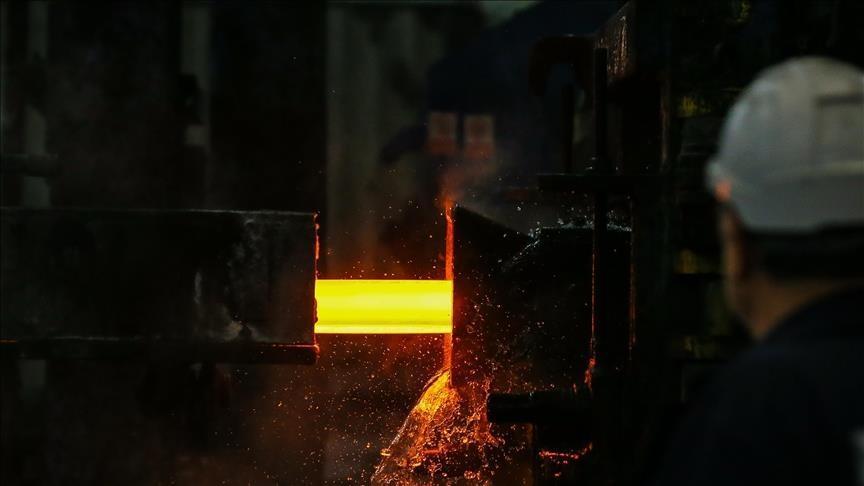Africa-Press – Lesotho. Donald Trump’s tariffs on steel and aluminum imports began Wednesday “with no exceptions or exemptions,” marking a significant step in reshaping global trade practices to favor the US.
The move to strengthen protections for American steel and aluminum producers imposed a 25% tariff on all metal imports.
The European Commission quickly stated it would impose counter-tariffs on €26 billion ($28 billion) on US goods starting next month.
“We deeply regret this measure,” European Commission President Ursula von der Leyen said in a statement about US tariffs, as Brussels revealed it would be “launching a series of countermeasures” in response to the “unjustified trade restrictions.”
But she informed reporters that she instructed Trade Commissioner Maros Sefcovic to restart discussions with US officials.
“We firmly believe that in a world fraught with geo-economic and political uncertainties, it is not in our common interest to burden our economies with such tariffs,” she added.
At a Business Roundtable on Tuesday, Trump said, “It may go up higher,” regarding the tariffs, CNN reported.
“The higher it goes, the more likely it is they’re going to build,” he said, referring to the increased likelihood of companies relocating production to the US. The steel and aluminum tariffs are the first to be applied to all countries during Trump’s second term.
Before the tariffs took effect, Australian Prime Minister Anthony Albanese condemned the move as “entirely unjustified” and “against the spirit of our two nations’ enduring friendship.”
He confirmed, however, that Australia would not impose reciprocal tariffs. “Tariffs and escalating trade tensions are a form of economic self-harm and a recipe for slower growth and higher inflation,” he said, which is why Australia decided against imposing counter-tariffs, as reported by CNN.
Britain also decided not to retaliate, with Prime Minister Keir Starmer aiming for a long-term trade deal with the US.
The UK’s Business Secretary Jonathan Reynolds described the tariffs as “disappointing” and stated that the government would advocate for a trade deal with the US, BBC reported.
Ahead of the tariff deadline, Trump threatened to double tariffs on Canadian steel and aluminum in response to electricity price hikes by the Canadian province of Ontario for US customers.
Ontario Premier Ford said Trump should be held responsible if a recession occurs in the US, telling MSNBC: “If we go into a recession, it will be called the Trump recession.”
But he backed off after Ford agreed to suspend a 25% surcharge on electricity exports to three US states. Ford also announced plans to meet US officials Thursday in Washington to discuss revising the free trade treaty known as the US-Mexico-Canada (USMCA).
China will face even higher tariffs, with a 20% tariff already in place and an additional 25%, bringing total tariffs to 45% on Chinese steel and aluminum. While the US imports very little steel directly from China, some Chinese steel still enters the country through other nations or by being mislabeled and resold through various channels.
While China did not directly respond to the tariffs, Foreign Ministry spokeswoman Mao Ning stated in a media briefing Wednesday: “What the US did severely violates the WTO (World Trade Organization) rules, harms the rules-based multilateral trading system, and does no good to solving problems. China will take all necessary measures to defend its lawful rights and interests.”
While former US President Joe Biden allowed exceptions for US allies such as Canada, Mexico, Japan and South Korea, Trump’s decision removes those exceptions.
South Korea announced it would enter “full emergency response mode” as the US tariffs took effect Wednesday. Industry Minister Ahn Duk-geun said the plans are designed to minimize the effect of the US duties on local industries, according to Yonhap News.
Japan’s Chief Cabinet Secretary Yoshimasa Hayashi also stated that the move could significantly affect US-Japan economic relations.
For More News And Analysis About Lesotho Follow Africa-Press






